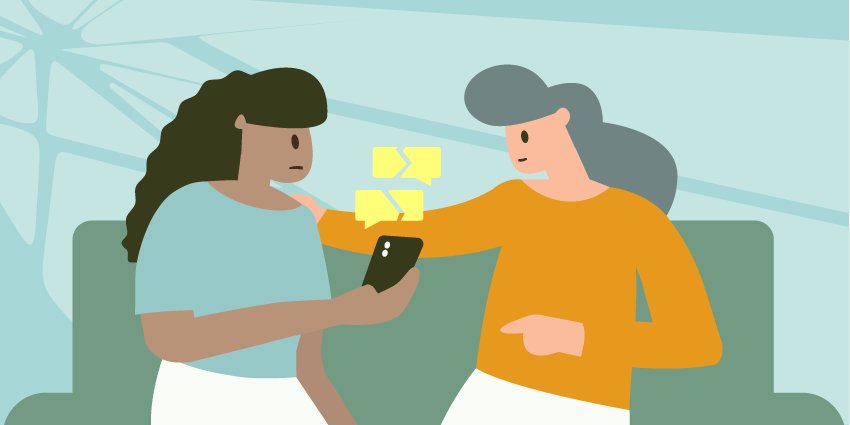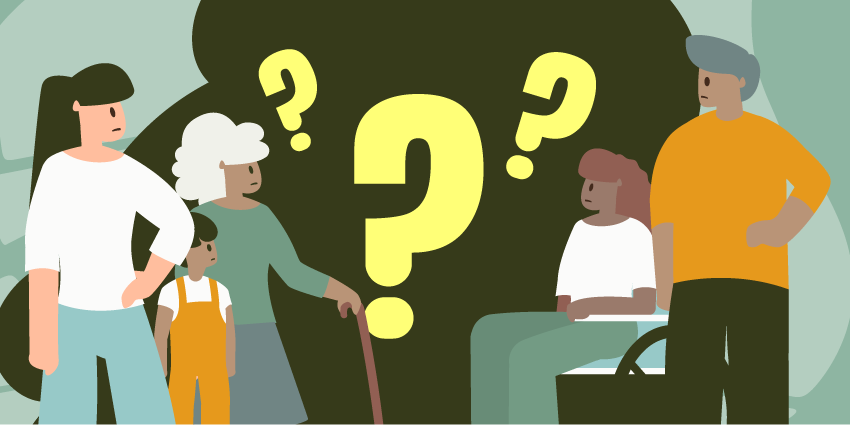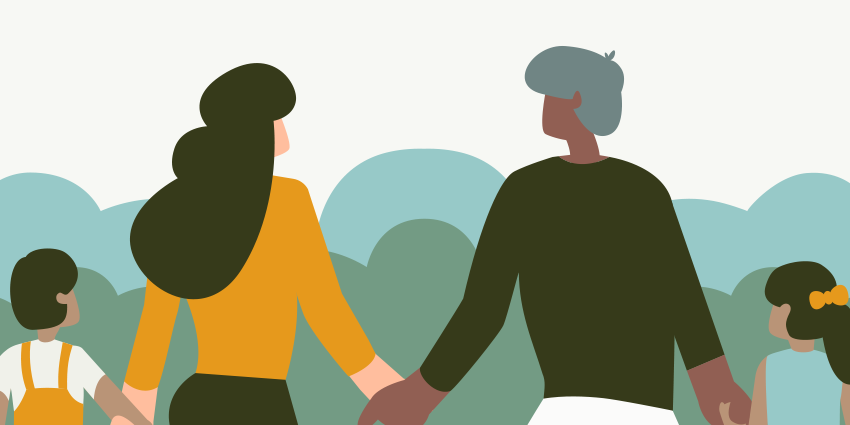To find services or supports you are comfortable with, please visit the helplines and support services page – use a friend’s phone if you think yours is being monitored.
If someone at home is making you or your family feel scared, you might be going through family and domestic violence. It doesn’t have to be hitting and pushing. The violence can include making you or someone else feel bad by:
- Yelling or swearing at them.
- Saying mean things to someone to hurt them.
- Threatening or bullying them.
- Controlling what they can and can’t do.
It can be scary to see family and domestic violence as a child or young person. It can make you feel unsafe and helpless.
Remember, you’re not alone, and the violence is never your fault. Keep reading to find out how family and domestic violence impacts young people and what support services that are here to help you.
How you might be experiencing family and domestic violence
As a child or young person, you might experience family and domestic violence when:
- The violence or abuse is happening to you.
- Or when you see it happening to someone else.
- When you know it’s happening in your home, or to someone you care about, even if it only happens when you’re not there, or you don’t see it or hear it.
Family and domestic violence can happen in many different ways, and it doesn’t have to be physical. It can include:
- Seeing or hearing a parent or carer experience violence.
- Having to take extra care of your siblings or your parents or carers after violence has happened.
- Feeling scared of violence in your home.
- Not being looked after properly by your parents or carers.
- Experiencing violent behaviour and abuse yourself.
- Being asked to spy and report on other family member’s actions or movements.
- Threatening to take you away or harm you.
- Trying to make you choose sides and turn against one parent.
- Using visits or custody to keep control, even after separating.
Things you might be feeling
Experiencing family and domestic violence can be overwhelming and confusing. Everyone reacts in their own way, but here are some feelings or thoughts you might have if there’s violence at home:
- Feeling like it’s your fault that violence is happening.
- Feeling bad for not being able to stop the violence.
- Feeling scared of what might happen if you get help.
- Worrying that it could break up your family if you get help.
- Feeling physically sick, tired or having stomach aches from the stress.
- It could be hard to focus and learn in school.
- Negative thoughts in your head.
- Using drugs or alcohol.
- Feeling scared to talk to anyone outside of your family.
- Wanting to help and change things but not knowing how to help.
What you can do
If you, or someone you know, is in immediate danger, call the police now on 000.
If you are experiencing family and domestic violence here’s what you can do:
Tell someone you trust what's happening at home
Talking about what you’re experiencing can be difficult. When you’re ready to talk to someone, choose a person you trust. This can be:
- A relative.
- A friend.
- A friend's parent.
- A teacher at school.
- A school counsellor.
Take some safety steps
If you are older and can handle more responsibility, you can try take some safety steps when dealing with family violence at home:
- Know your safe spaces and places you can go if you need to be away from the conflict, like a friend’s house or a trusted neighbour’s house.
- Have important emergency contacts ready, including phone numbers from trusted adults, emergency services and support hotlines.
- Plan an exit strategy and prepare a bag with essentials ready to go such as clothes and any medications you need. Keep it somewhere it won’t be found like somebody else’s house.
- Keep a phone handy and make sure it’s charged. You can use it to call for help if you feel unsafe.
- Don’t try to stop the violence if it’s between adults. You should focus on staying safe and getting support.
- Seek support services and reach out to organisations that offer help for young people. They can provide guidance to keep you safe. See below for a list of services available.
Get help from a support service
There are many support services available to help you. If you’re not comfortable talking on the phone to someone, there are online chat services and mobile phone apps where you can message trained counsellors confidentially.
- Kids Helpline: provides free support and counselling (talking through problems) to people aged 5-25. Phone: 1800 551 800.
- Women’s Domestic Violence Helpline: provides support for women, with or without children, who are experiencing family and domestic violence in Western Australia (including referrals to women’s refuges). Phone: 1800 007 339. *This helpline is operated by Department of Communities, and your call will be answered by a child protection worker. We are here to help.
- Men’s Domestic Violence Helpline: provides telephone information and referrals for men who are concerned about their violent and abusive behaviours, and for male victims of family and domestic violence in Western Australia. Phone: 1800 000 599. *This helpline is operated by Department of Communities, and your call will be answered by a child protection worker. We are here to help.
- Lifeline: provides support for those experiencing emotional distress with access to 24-hour crisis support and suicide prevention services. Phone: 13 11 14.
- headspace: provides mental health and wellbeing support for young adults aged between 12-25. Phone: 1800 650 890.
- 1800RESPECT: a national telephone and online counselling and referral service. Phone: 1800 737 732.
- 13 YARN: provides 24/7 support for Aboriginal and Torres Strait Islander people. Phone: 13 92 76.
- ReachOut: a 100% online, anonymous and confidential support service for young adults.
- Suicide Call Back: provides immediate telephone counselling and support in a crisis for people over 15 years old. Phone: 1300 659 467. Online chat is available 24/7.
Find more information and resources
- BeyondNow: an app designed to help people feeling suicidal to create a safety plan they can access at any time.
- eSafetyyoung people: find useful information to help you stay safe online.
- eSafetykids: find useful information help you be an eSafe kid.






